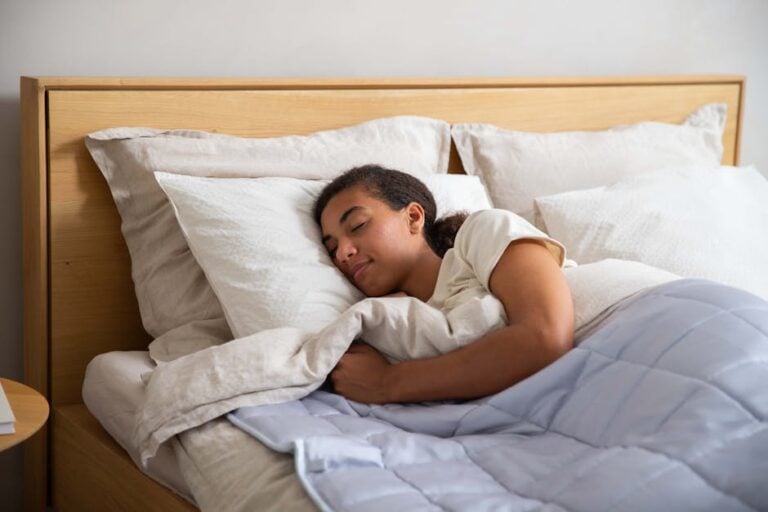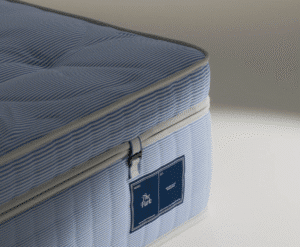7 Professions That Can Affect Your Sleep Quality Before It’s Too Late
Understanding the Impact of Job on Sleep Quality
In today’s fast-paced world, the relationship between sleep and career is often overlooked. However, certain professions significantly hinder sleep quality, impacting overall well-being. Poor sleep doesn’t just leave you feeling tired—it’s linked to a multitude of health problems, including irritability, memory issues, and even chronic conditions like heart disease and depression. Research shows that about one in five Americans struggles to achieve adequate sleep due to work-related stress and irregular hours.
Identifying the worst professions for sleep quality can help individuals in these roles recognize their challenges and take proactive steps to alleviate sleep deprivation. Below are seven careers that can severely affect sleep quality, detailed through various stressors associated with each job.
1. Air Traffic Controllers: Juggling High Stakes
Air traffic controllers bear the immense responsibility of ensuring the safe travel of thousands daily. Their work is characterized by high stress, irregular hours, and demanding mental focus that can severely disrupt sleep:
Shift Work and Irregular Hours
Air traffic controllers frequently rotate through shifts that can span days, nights, and weekends, wreaking havoc on their circadian rhythms. This erratic schedule often leads to a condition known as Shift Work Sleep Disorder, which manifests as insomnia and excessive daytime sleepiness.
High Stress Levels
The demands of maintaining safety in air traffic control create an environment rife with stress. This constant vigilance can make it difficult to unwind, leading to chronic sleep disturbances. A study published in the New England Journal of Medicine highlights the correlation between this high-stress profession and sleep issues.
Real-Life Impact
Many controllers report difficulty falling asleep even during their off hours, an experience echoed in the statistic that 58% report receiving less than seven hours of sleep nightly.
2. Nurses and Healthcare Workers: The Heart of Stress
Nurses and healthcare workers are incredibly dedicated but often face severe consequences regarding their sleep quality due to:
Long Shifts and Night Shifts
Typically working 12-hour shifts, these professionals often find it challenging to wind down when they return home. Night shifts further complicate their sleep schedules, leading to chronic sleep debt and heightened risk for insomnia.
Emotional Toll
The emotional and physical demands of patient care can be overwhelming. Studies show that healthcare workers regularly experience high stress and anxiety related to life-and-death situations.
Real-Life Impact
One medical assistant remarked, After long hours caring for critical patients, I find it hard to switch off my mind at home. This emotional toll can make it difficult for healthcare professionals to achieve restorative sleep.
3. Communications Equipment Operators: Alert at All Times
Operators of communications equipment often work irregular hours and handle emergency calls that can significantly disrupt their sleep patterns.
Shift Work Challenges
With a significant percentage working night shifts, these operators face a disrupted sleep routine, impacting their circadian rhythms. This irregular schedule is strongly correlated with poor sleep quality.
Constant Readiness
The unpredictability of emergency calls keeps operators on edge, making it nearly impossible to relax after shifts. According to the National Sleep Foundation, chronic sleep deprivation in this role can lead to significant health challenges.
4. Transportation Workers: Navigating Exhaustion
Transport professionals, from truck drivers to bus operators, regularly face long hours and irregular schedules.
Long Hours
Truck drivers often work up to 70 hours a week, drastically limiting their sleep opportunities. The National Institute for Occupational Safety and Health (NIOSH) links long work hours to significant sleep deprivation.
Safety Risks
The consequences of sleep deprivation in this field are dire. Drowsy driving significantly increases the risk of accidents, showcasing how crucial it is for these workers to prioritize sleep.
5. Food Preparation and Serving Workers: Late Nights, Early Mornings
The hospitality industry is riddled with demanding schedules that disrupt sleep.
Irregular Hours
Many food service roles require late-night and early-morning shifts, making it challenging for workers to establish a consistent sleep routine. According to the CDC, this kind of irregular schedule is closely linked to sleep disorders.
High Stress Levels
The fast-paced environment often drives stress levels higher, which can further complicate the ability to unwind after shifts.
6. Police Officers and Firefighters: Always on Alert
The responsibilities of police officers and firefighters can lead to acute sleep deprivation.
High-Stress Emergency Responses
These professionals often operate in high-stress environments, responding to life-threatening situations. The unpredictability of their jobs results in disrupted sleep patterns.
Impact on Well-being
With 45.8% of firefighting professionals reporting inadequate sleep, the implications for mental and physical health are serious. The constant alertness required can hinder their ability to relax and recuperate.
7. Factory and Plant Workers: The Weight of Physical Labor
Finally, factory and plant workers face their unique set of challenges.
Shift Work and Physical Demands
Working in shifts, often involving heavy physical activity, can lead to feelings of fatigue. However, physical exhaustion does not always result in quality sleep due to bodily tension and soreness.
Safety Concerns
With safety at risk, sleep deprivation can have dire consequences, making it vital for these workers to find ways to improve their sleep quality.
Conclusion
Recognizing the worst professions for sleep quality is the first step toward improving your overall health and job performance. If you find yourself in one of these demanding fields, it’s essential to prioritize sleep through effective sleep hygiene practices. Small changes—like establishing a consistent sleep schedule, creating a relaxing bedtime routine, and investing in comfortable bedding—can yield significant benefits for your rest and resilience.
Understanding these sleep challenges and taking proactive steps can lead to improved well-being, not only for the individual but also in fostering safer environments within each profession. Prioritize your sleep to enhance both your health and professional performance.


















